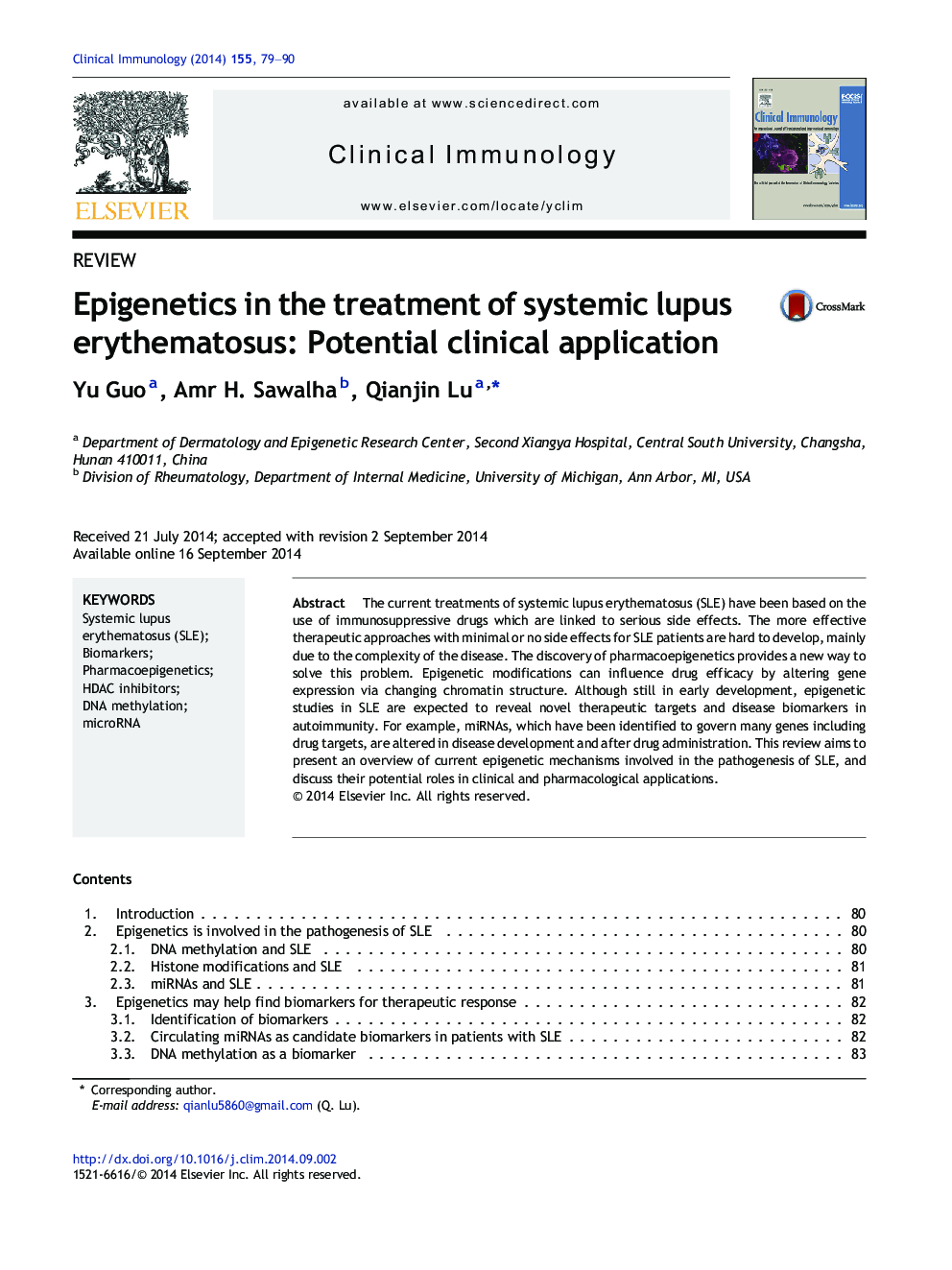| کد مقاله | کد نشریه | سال انتشار | مقاله انگلیسی | نسخه تمام متن |
|---|---|---|---|---|
| 6087349 | 1207358 | 2014 | 12 صفحه PDF | دانلود رایگان |
- Epigenetic regulation plays a vital role in the development of SLE.
- miRNAs are promising biomarkers for the diagnosis and therapeutic outcome of SLE.
- HDAC1 inhibitors and anti-miRNA agents have a therapeutic potential in SLE.
The current treatments of systemic lupus erythematosus (SLE) have been based on the use of immunosuppressive drugs which are linked to serious side effects. The more effective therapeutic approaches with minimal or no side effects for SLE patients are hard to develop, mainly due to the complexity of the disease. The discovery of pharmacoepigenetics provides a new way to solve this problem. Epigenetic modifications can influence drug efficacy by altering gene expression via changing chromatin structure. Although still in early development, epigenetic studies in SLE are expected to reveal novel therapeutic targets and disease biomarkers in autoimmunity. For example, miRNAs, which have been identified to govern many genes including drug targets, are altered in disease development and after drug administration. This review aims to present an overview of current epigenetic mechanisms involved in the pathogenesis of SLE, and discuss their potential roles in clinical and pharmacological applications.
Journal: Clinical Immunology - Volume 155, Issue 1, November 2014, Pages 79-90
